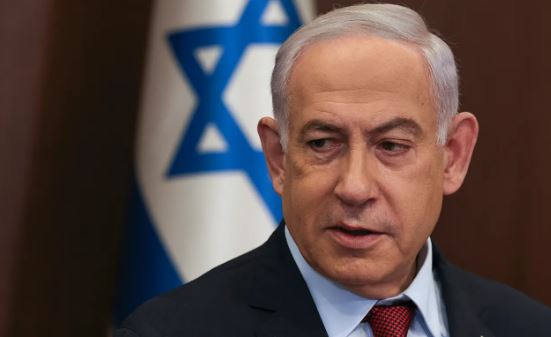Netanyahu’s Controversial Stance on Palestinian Statehood and Israel’s Control from River to Sea

Israeli Prime Minister Benjamin Netanyahu has unequivocally rejected the idea of a Palestinian state, asserting Israel’s need to maintain control “from the river to the sea.” This statement, made amidst rising tensions and ongoing conflicts, has sparked significant debate and concern globally.
Netanyahu’s position is seen as a stark rejection of the two-state solution, a long-standing international framework aimed at resolving the Israeli-Palestinian conflict. His declaration came in response to the Biden administration’s call for the establishment of a Palestinian state as part of a post-war arrangement. The U.S. government, despite supporting Israel’s offensive in Gaza, has urged Israel to scale back its attacks and incorporate the creation of a Palestinian state in future peace plans. Netanyahu, however, maintains that the conflict is rooted not in the absence of a Palestinian state, but in the existence of Israel, a Jewish state. He argues that every area evacuated by Israel has become a source of severe terror, necessitating complete control over the territory west of the Jordan River for Israel’s security.
This stance has not only intensified the rift between Israel and the U.S. but has also raised ethical and political concerns. Critics argue that such an expansive claim over Palestinian territories could permanently foreclose the possibility of a Palestinian state, leading to continuous unrest and violence in the region. Netanyahu’s words, “from the river to the sea,” have been particularly controversial, as this phrase has historically been associated with Palestinian nationalism and the demand for political rights for Palestinians.
Internationally, Netanyahu’s comments have been met with mixed reactions. Some view his stance as a pragmatic approach to ensuring Israel’s security, while others see it as a major obstacle to peace and a violation of Palestinian rights. The implications of his statement are far-reaching, affecting not only the Israeli-Palestinian conflict but also Israel’s relations with its allies and the broader geopolitical dynamics in the Middle East.
As the situation continues to evolve, the international community remains watchful, pondering the future of peace and stability in a region long marred by conflict and discord.





